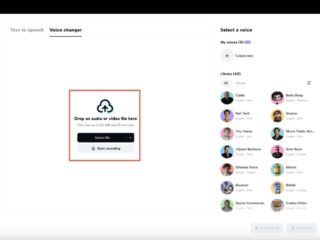
When looking at health insurance for living abroad, pre-existing conditions matter. These are health issues you already have when getting new insurance. There are two main ways insurers look at these conditions. The first, known as the “objective standard,” includes any condition you got advice or treatment for before starting your new insurance. The second method, the “prudent person” definition, looks at conditions needing treatment. If a wise person would have sought treatment for these symptoms, they count too.
International health insurance for expats usually needs detailed health checks. This is called medical underwriting. They look at your health history to decide what coverage they can offer. You might get everything covered without changes, or some parts might not be covered. For instance, expat health insurance pre existing conditions may require special consideration. They could charge more for your risk or even say no to your application.
Some international health insurance plans might cover certain pre-existing conditions if you’ve had insurance for at least 24 months without a break. This rule depends on the plan. Also, general travel insurance usually doesn’t cover pre-existing conditions. But, if a pre-existing condition suddenly worsens and needs urgent care, they might help.
Because dealing with pre-existing conditions can be tricky, it’s smart to get advice from experts. Companies like the International Citizens Group are great at this. They help expats find the right health insurance, which allows them to get the medical help they need while living in another country.
Understanding Pre-existing Conditions in Expat Health Insurance
Expat health insurance considers pre-existing conditions when choosing coverage. They are any health issues you had before the new insurance starts.
This includes illnesses or symptoms you’ve already seen a doctor for.
Definition and Types of Pre-existing Conditions
There are two ways to look at pre-existing conditions. The objective standard covers conditions diagnosed or treated by a doctor. The prudent person standard concerns symptoms that should’ve made you see a doctor. Conditions like diabetes or asthma are usually counted as pre-existing.
Why Insurers Exclude Pre-existing Conditions
Insurers avoid covering pre-existing conditions due to the risks and costs involved. They might not cover them, make you wait, raise costs, or put limits. Keeping up medical coverage and understanding your policy is key to handling this. It’s very important to be honest about your health history. Hiding any health issues could cancel your policy.
Acute Onset of Pre-existing Conditions
When a pre-existing condition suddenly gets worse, that’s an acute onset. For example, Patriot Travel Medical insurance in the US can cover up to $20,000 for such events. This type of coverage doesn’t include conditions always expected to flare up. It’s wise to check with reliable sources like International Citizens Insurance to know your options as an expat.
Do International Health Plans Cover Pre-existing Conditions?
International health plans can be tricky when it comes to pre-existing conditions. These are any health issues you had before getting the policy. Insurers look at your past health to decide if they will cover these conditions. They might change your coverage, increase your costs, or deny you.
Many plans for expats handle pre-existing conditions differently. Some may cover these conditions for life but with some limits. Usually, they might set a $50,000 cap and $5,000 per period after two years of continual coverage. Meanwhile, normal travel insurance is easier to get but rarely covers pre-existing conditions without special circumstances.
Excluding pre-existing conditions is about managing risk and costs for insurers. But, some plans do offer ways to cover these conditions. This could mean paying extra, a waiting period, or even free coverage. However, these decisions depend greatly on your health history and the insurer’s policies and risks.
Joining a group insurance as an expat might help, as they sometimes include all pre-existing conditions. You must fully disclose your health when applying, down to your medication. Giving false or incomplete information could lead to your policy being canceled. For help understanding your options, talking to experts at places like International Citizens Insurance can be very useful.












